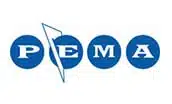Calculating Pneumatic Actuator Air Consumption
Question
We are designing a system that includes several pneumatic slide gates. My slide gates fit a 12-inch screw conveyor. I have 70-psi plant pressure and want each gate to open and close in 2 seconds. What is the air usage in SCFM for pneumatic actuators?
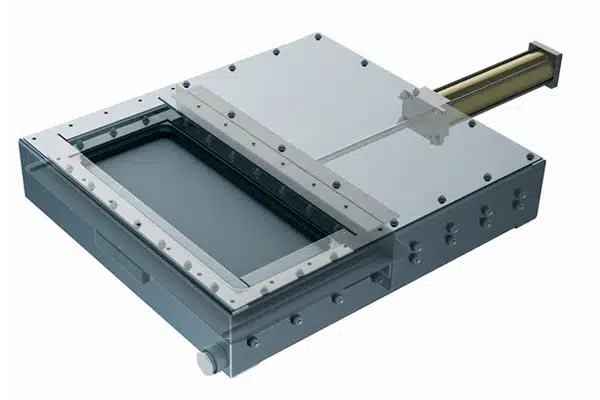
Slide Gates Control Discharge of Bulk Materials from Hoppers, Bins, Silos or Conveyors
Answer
All machines need some form of energy to complete their tasks. In this case, pneumatic actuators use the pressure of air to perform work. There are several different types of pneumatic actuators, but the most commonly employed for slide gates utilize a single piston rod.
The air demand (SCFM) (standard cubic feet per minute) is used to represent the amount of air required to operate your pneumatic actuator.
A few variables are needed to calculate our SCFM value: Piston area (in2) or πr2 with r being radius of cylinder bore, stroke length (in), compression ratio (Table 1), and stroke time or the amount of time for cylinder to fully open or close (sec).
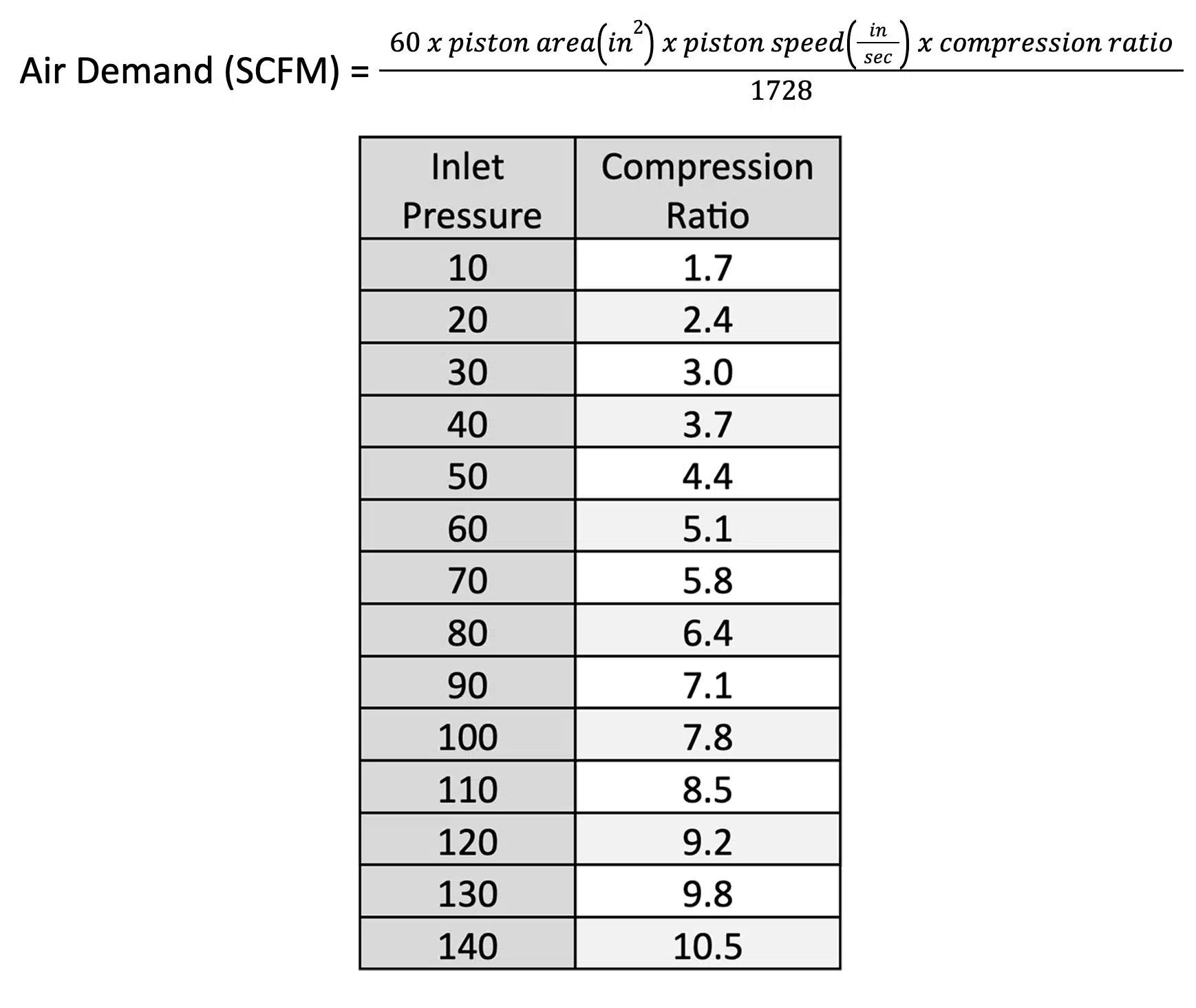
KWS standard 12-inch flat pneumatic slide gates are equipped with a 2-inch diameter bore x 14-inch stroke pneumatic cylinder. Using Table 1 insert your variables in the air demand (SCFM) equation.

Compression Ratio = 5.8 (from Table 1 above for 70-psi inlet pressure)
Now, plug this information into the equation below –

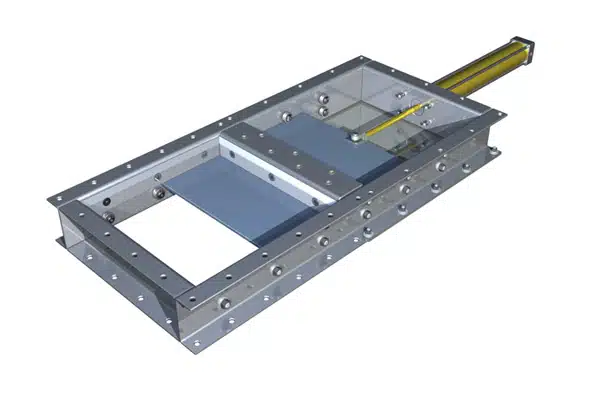
Pneumatic Actuators Use Air Pressure to Open and Close Gates
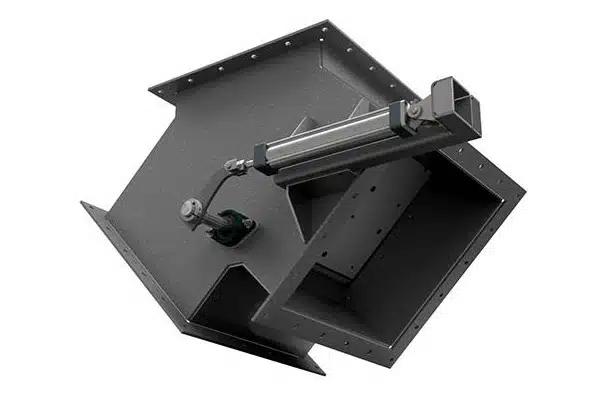
Bulk Materials are Diverted to One Side of the Other to Feed Multiple Processes
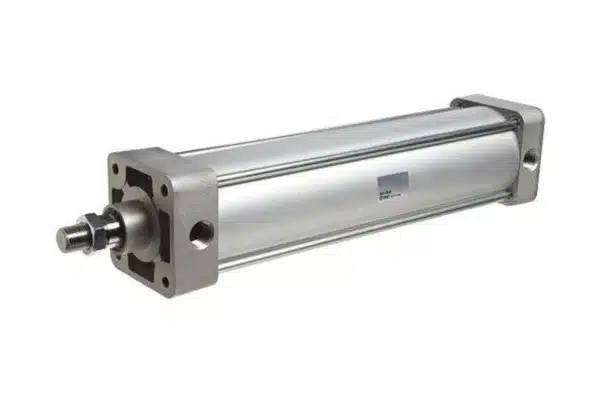
Air Demand is Easily Calculated Based on Piston Area, Piston Speed, and Compression Ratio


